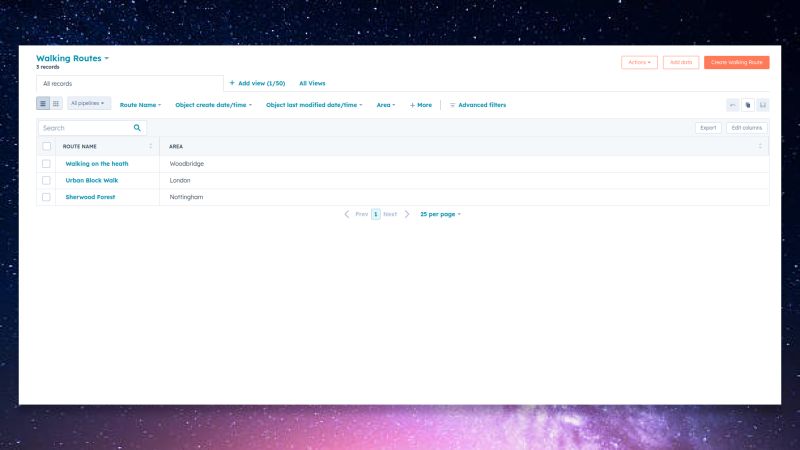
If there's one feature in HubSpot that doesn't get the attention it deserves, it's Custom Objects. While most users focus on the standard CRM objects (contacts, companies, deals, tickets), the true flexibility of the platform lies in its customization capabilities.
Some data naturally fits into HubSpot's existing structure:
But if you're struggling to organize your business data in HubSpot, Custom Objects might be exactly what you need.
Some forward-thinking businesses are already leveraging Custom Objects brilliantly - like Event Hapily's custom Event types. But the real magic happens when you think more abstractly:
Property Management
Need health metrics for your properties? Create a "Property" custom object to track metrics like occupancy rates, maintenance costs, and tenant satisfaction - then transform this data into actionable dashboards.
Dog Walking Service
Don't just create a "Dog" object to track your furry clients. Take it further with a "Walking Route" custom object to optimize your service. Now you can use workflows to automate route assignments, track completion times, and identify the most efficient paths.
Food Truck Business
Create a "Location" custom object to track performance across different venues. Easily analyze which locations generate the most revenue, attract the biggest crowds, or yield the highest average order values.
The next evolution in the HubSpot ecosystem will be industry-specific app packages - with Custom Objects at their core. These specialized solutions will transform how businesses in niche industries leverage HubSpot's platform.
As more developers and businesses recognize the potential of Custom Objects, we'll see increasingly sophisticated implementations that solve industry-specific challenges that standard CRM objects simply can't address.
If you haven't explored Custom Objects yet, now's the time. Start by identifying the unique entities in your business that don't fit neatly into contacts, companies, deals, or tickets. Then consider how these entities relate to your existing HubSpot data and what properties they should have.
The investment in setting up Custom Objects pays dividends in improved data organization, more powerful automation, and deeper business insights.
